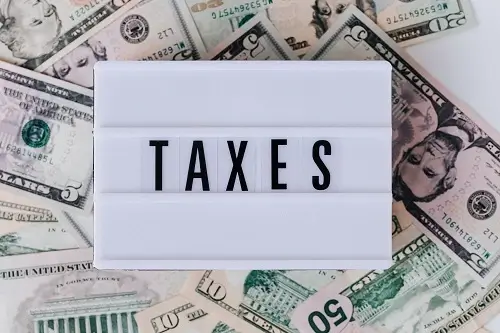You’ve to pay tax when you earn money from pensions, employment, government payments, investments, and foreign income.
The amount you pay depends on:
- Your earning, and
- any deductions you can claim or offsets you’re entitled to
If you’re an employer, the company will detect tax from each pay and send it to the Australian Taxation Office (ATO) on your behalf. If you’re self-employed, you’ve to set aside and pay tax yourself.
At the end of the financial year most people need to lodge a tax return with the Australian Taxation Office. You can also do that by accessing the online myGov account, or with the help of an accountant or tax agent.
For calculate your GST, Please visit our GST Calculator
Calculate How much Tax you’ll Pay
In Australia, The tax is on the money you earn. The below table shows you the tax for Australian residence for over 18. It does not include the Medicare levy of 2%.
Tax rates 2021-22 (There are no changes to the income tax rates for 2022-23.)
| Taxable income | Tax on this income |
| 0–$18,200 | Nil |
| $18,201–$45,000 | 19c for each $1 over $18,200 |
| $45,001–$120,000 | $5,092 plus 32.5c for each $1 over $45,000 |
| $120,001–$180,000 | $29,467 plus 37c for each $1 over $120,000 |
| $180,001 and over | $51,667 plus 45c for each $1 over $180,000 |
That’s mean if you’re earned $60,000 during the 2021-22 tax year, your tax would be calculated like this:
| Taxable income | Tax rate | Tax payable |
| $18,200 | x nil | = $0 |
| $26,800 (income between $18,200 and $45,000) | x 19c | = $5,092 |
| $15,000 (income between $45,000 and $60,000) | x 32.5c | = $4,875 |
| $60,000 | $9,967 |
This calculation does not include the 2% Medicare levy.
If you’re a Foreign resident or under 18, see your individual income tax rates on the ATO website.
Medicare Levy and Surcharge
Many people also pay Medicare levy, which is 2% of your income taxable. The levy is charged to you as a part of your yearly income tax assessment.
If you’ve a low income, the levy may reduce the tax or maybe you will not have to pay it at all. If you’ve a high income, you may have to pay a medicare levy surcharge in between 1% to 1.5%. It depends on the private health insurance you have and how much you and your spouse earns (if you have one).
Your Taxable Income
Your taxable income is the income you must pay on it. It includes your income, less your tax deductions.
Income that is Taxable
Income that you must pay tax on your earning from:
- Income from trusts, partnerships or businesses
- Capital gains
- Some grants and payments
- Employment
- Pensions and annuities
- Income from trusts, partnerships or businesses
- Investments
Income that is not Taxable
- Some government grants and payments
- Child support
- Government super co-contributions
- Lottery winnings and other prizes
- Small gifts or birthday presents
- The tax-free portion of your redundancy payment
Also read about: How to register for GST in Australia
Reducing the Tax you Pay
You may be able to reduce tax you pay if:
- You’re entitled to tax deductions or offsets, or
- You choose to salary package (salary sacrifice)
Tax deductions
Tax deductions also help you to reduce your taxable income. You can claim some detection in your return tax.
Common Tax deduction as below:
- Charitable donations
- Work-related expenses
- Union fees
- The cost of managing your tax affairs (for example, paying an accountant)
Tax offsets
Tax offsets, also known as rebates, directly reduce the tax payable. They are applied when the tax amount has been calculated.
Tax offsets include offsets for:
- Seniors and pensioners
- Low-income and middle-income earners
- Caring for an invalid relative
- The taxable portion of a superannuation income stream
Salary packaging
You received your salary after detection of tax. You can also reduce your salary to reduce your income tax.
Where to get help with tax
Individual income tax can be harder, everyone’s situation is different. If you want expert advice, think about hiring an accountant to manage your tax and lodge your tax return.




